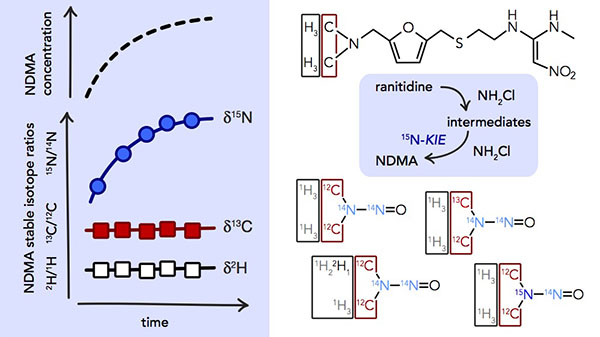Department Environmental Chemistry
Tracking the formation of drinking water disinfection byproduct with stable isotopes
N-nitrosamines such as N-nitrosodimethylamine (NDMA) are of public and regulatory concern because these potent carcinogens can be formed as unintented by-products during drinking and waste water disinfection/oxidation.
Numerous compounds have been identified as precursors that lead to NDMA, once source waters are treated by chlorine, chloramine, or ozone. Unfortunately, the understanding of the mechanisms of N-nitrosamine formation is limited thus making it difficult to predict NDMA formation potentials of water constituents and to develop efficient mitigation strategies.
Our project aims at revealing typical pathways of N-nitrosamine formation from temporal variations of the natural abundance of stable C, N, and H isotope ratios of NDMA. The central hypothesis is that reactions leading to NDMA exhibit distinctly different kinetic isotope effects, which are revealed in the isotope fractionation of evolving NDMA.

